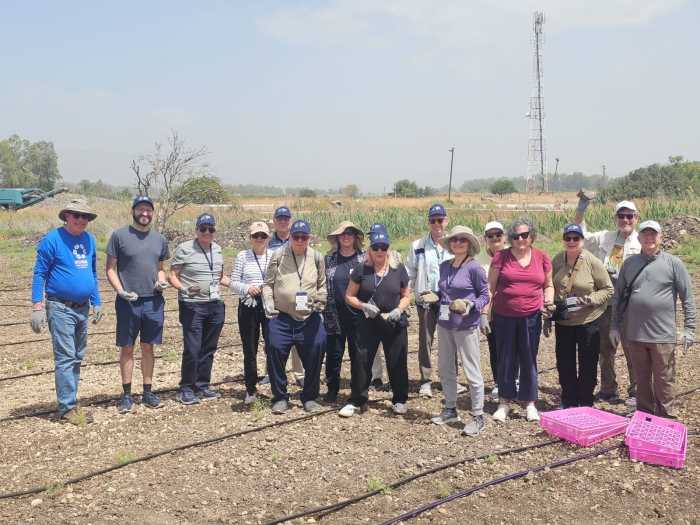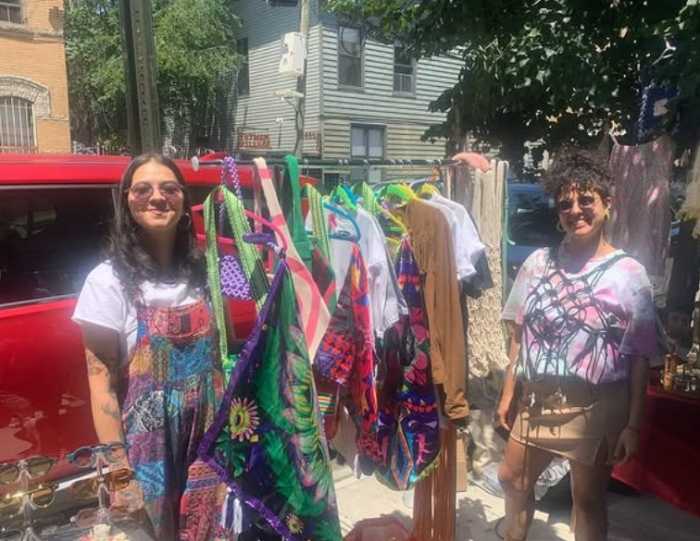By Brendan Browne
A retired Israeli general and an Arab human rights activist from Israel joined leaders from the Queens Jewish community last week to discuss the conflicts facing Israel and the dispute’s connection to the U.S. war on terrorism.
The emotionally charged talk at the Hillcrest Jewish Center called “Insuring the Survival of Israel” dealt with topics varying from humanitarian needs to Palestinian leadership to the history of Israel.
The main speaker, Gen. Israel Perlov, who served the Israeli government for more than 27 years, assured listeners that his country would in fact survive, but spoke of what he called problematic strategies of Palestinian leaders.
“Whatever we think of the solution, we are on the right side of the trigger,” he told listeners, many of whom had previously traveled to Israel. “The gap has not been narrowed” between Israeli and Palestinian power so “we should not think in extreme ways,” he added.
Perlov, who now heads Global Security International, a crisis management firm, said the actions of the Palestinian Authority and extremist groups like Hamas, Hezbollah, and the al-Aqsa Martyrs’ Brigade often run counter to the best of interest of Palestinians by forcing Israeli to defend itself.
“Do they think we’re going to leave?” he rhetorically asked the crowd, which included City Councilman Jim Gennaro (D-Fresh Meadows.) The work of large terrorist networks in the area could “lead to another Palestinian disaster,” he said.
Forsan Hussein, who helps run the Abraham Fund, which unites Palestinian and Jewish children living in Israel’s undisputed areas, spoke from a different perspective. Referring to himself as a Palestinian-Israeli, Hussein talked about his childhood in a Palestinian village inside Israel and the prejudices a segregated Israel instills in its young people.
Hussein, who never met a Jew as a youth, said that with only five mixed-religion cities in Israel, not including the disputed areas of the Gaza Strip and the West Bank, it is “very easy for both sides to grow up with stereotypes” that lead to the type of conflict present now.
Palestinians living in the undisputed areas of Israel, as Hussein said and Perlov reaffirmed later, often face discrimination and have much higher rates of unemployment and infant mortality as well as lower educational funding. Hussein chose not to address the issues involving the disputed territories and focused on the need to improve race relations in Israel.
Other Jewish leaders, such as City Councilman David Weprin (D-Hollis) and Steven Orlow, a member of the Brandeis Association, a Jewish lawyers group that sponsored the talk, spoke in strong tones about the future of Israel, linking the country’s plight to Sept. 11.
“This is the first time in our lifetime that the people of the United States can identify with what the people in Israel have been going through for a long time,” Weprin said. He stressed the importance of staying unified behind Israel and criticized the diplomacy of President Bush’s administration as waffling.
Orlow called Palestinian leader Yasser Arafat a liar and spoke of the Jews’ millennia-old presence in the Middle East.
Rabbi Manny Behar, executive director of the Queens Jewish Community Center, echoed his sentiments and stressed the need to help the victims of terrorism, including the children affected by the World Trade Center attack. Behar runs Project Liberty, which offers free counseling to people suffering from the Sept. 11 attacks.
Reach reporter Brendan Browne by e-mail at TimesLedger@aol.com or by phone at 229-0300, Ext. 155.



































